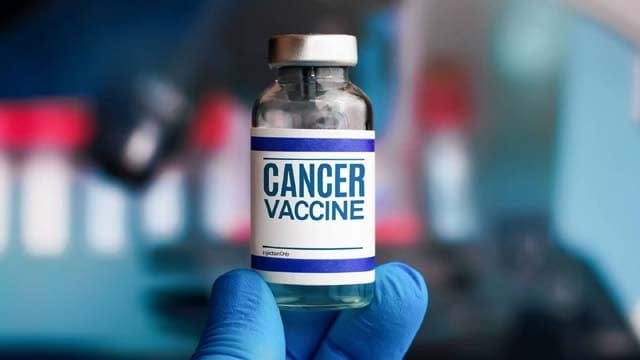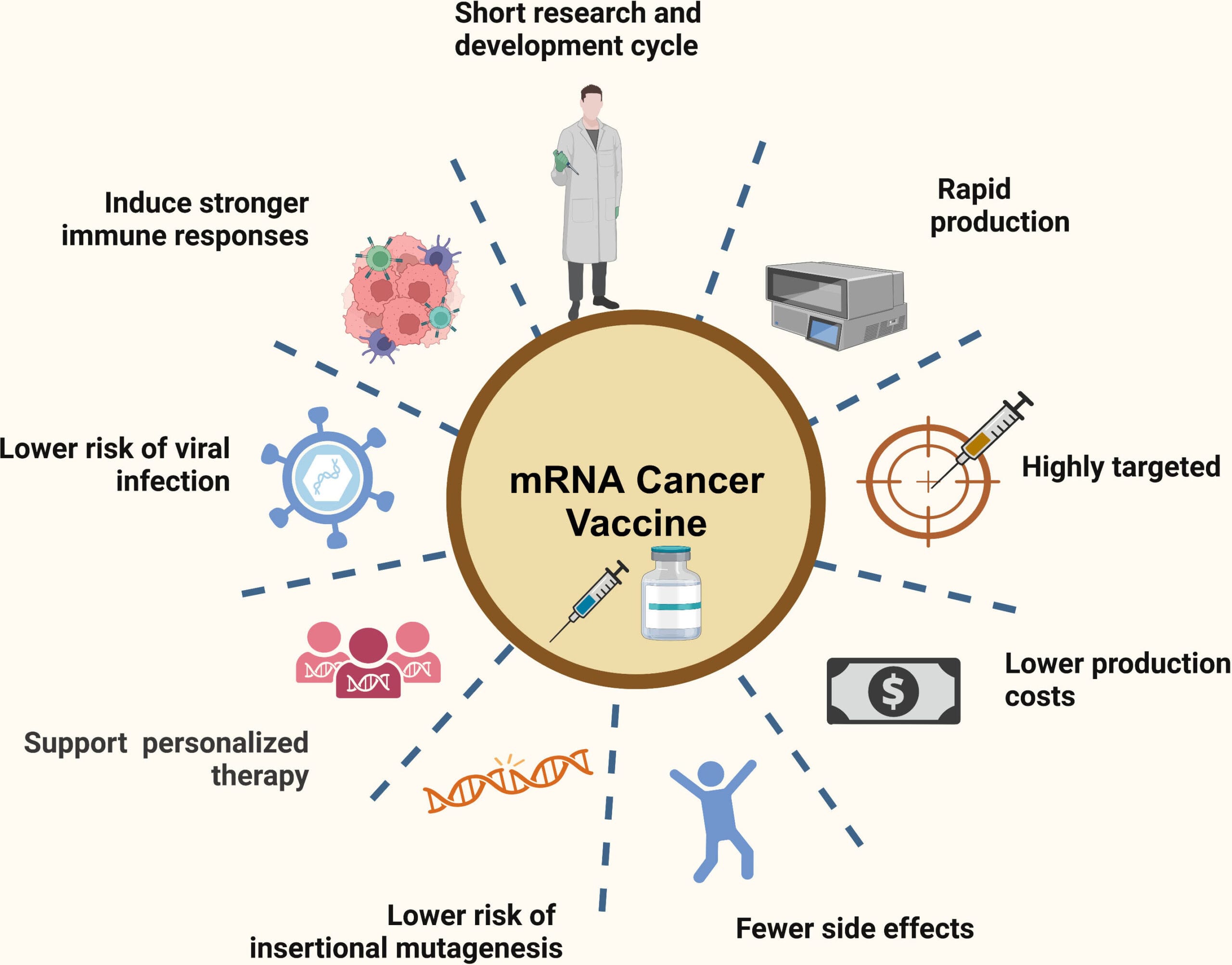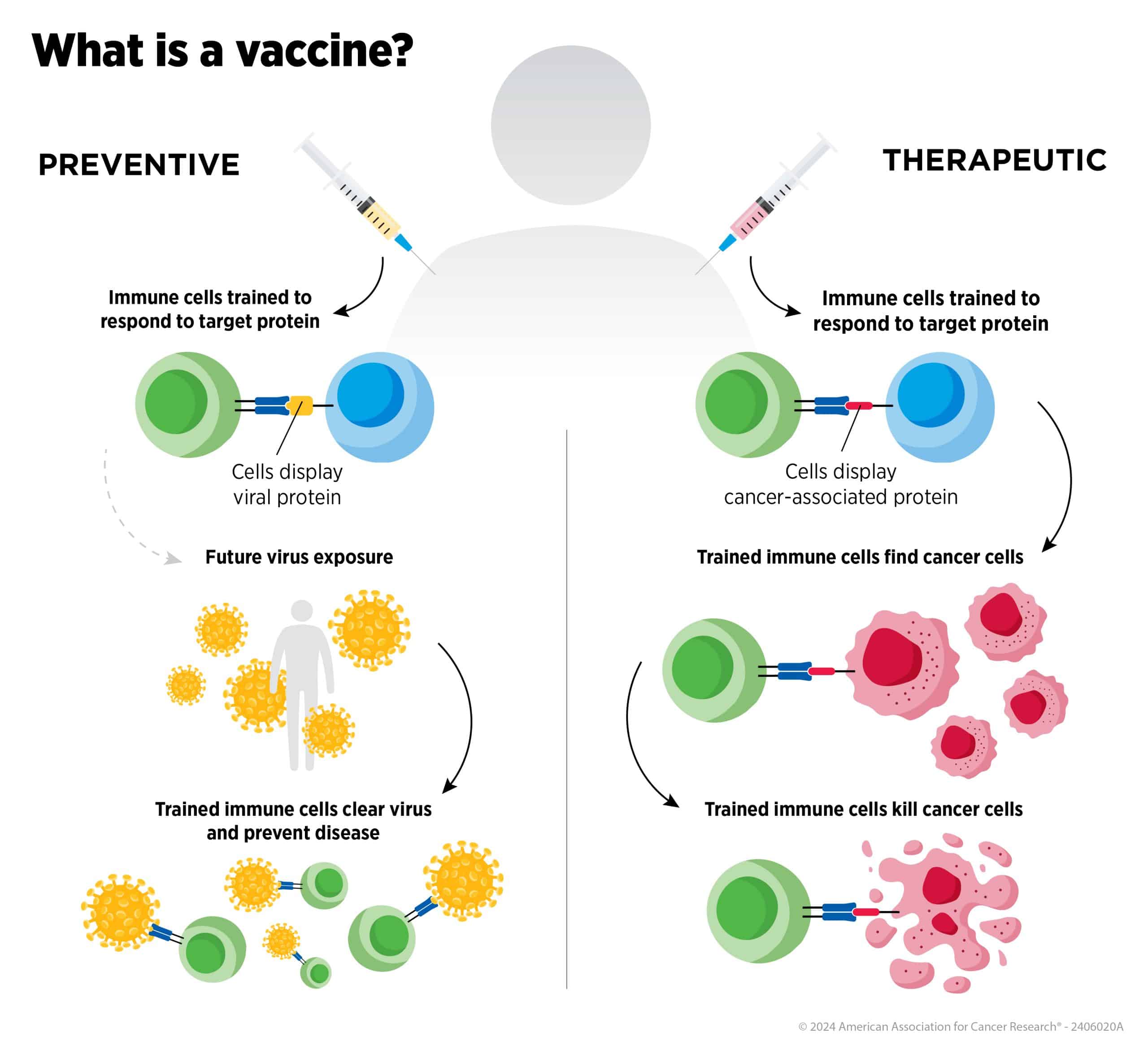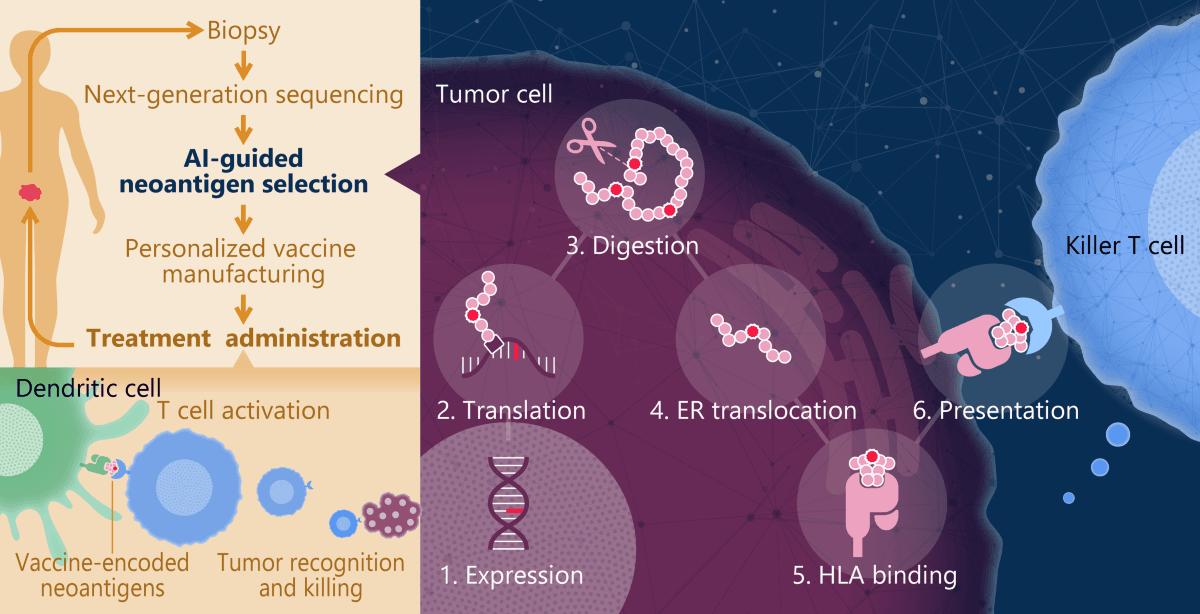The Science Behind
Russia’s Cancer Vaccine
Russia’s announcement of a cancer vaccine has drawn global attention. This development has sparked curiosity and debate worldwide. The vaccine, reportedly developed by the National Research Center for Oncology, targets specific types of cancer by training the immune system to identify and destroy tumor cells. Unlike conventional treatments such as chemotherapy or radiation, which often harm healthy cells, this vaccine claims to offer a targeted and less invasive approach.
Preliminary studies indicate that the vaccine is designed for therapeutic purposes rather than prevention. It incorporates antigens specific to cancer cells, triggering an immune response to attack these cells. Early-phase trials have shown promising results, particularly in reducing tumor size and improving patient survival rates. These findings, though preliminary, highlight the vaccine’s potential to redefine cancer treatment. However, scientists emphasize the need for large-scale clinical trials to confirm its efficacy and safety.
How the Vaccine Works
Cancer vaccines typically fall into two categories: preventive and therapeutic. Russia’s vaccine belongs to the latter, meaning it’s administered to patients already diagnosed with cancer. The vaccine is thought to work by introducing synthetic antigens or modified versions of tumor proteins into the body. These antigens alert the immune system to the presence of cancer cells, enabling it to mount a more robust response.

This approach is inspired by the principles of immunotherapy, a cutting-edge field in oncology. By enhancing the immune system’s ability to recognize and destroy cancer cells, the vaccine aims to overcome the natural defenses tumors use to evade detection. This innovative approach could mark a turning point in oncology, shifting the paradigm from reactive to proactive treatment. While promising, this method is not without challenges, such as potential autoimmune reactions and variability in patient responses.
The Role of Technology:
AI and Data Analytics
The development of Russia’s cancer vaccine highlights the growing role of technology in modern medicine. Artificial intelligence (AI) and data analytics are pivotal in accelerating drug discovery and optimizing vaccine design. These technologies enable researchers to navigate complex datasets, revolutionizing the speed and accuracy of medical breakthroughs. AI algorithms analyze vast datasets of tumor genomes and patient histories to identify patterns and predict immune responses. This enables researchers to refine vaccine formulations and personalize treatments based on individual patient profiles.
Additionally, advanced computational models are used to simulate how the immune system interacts with cancer cells, reducing the need for extensive trial-and-error experiments. Machine learning tools also facilitate the monitoring of clinical trials, ensuring accurate and real-time data collection, which is critical for regulatory approval. Such advancements underscore the transformative role of AI in modern medicine.
The Political Angle:
A Strategic Announcement?
Russia’s cancer vaccine announcement comes at a time when the country seeks to reassert itself as a leader in global health innovation. Similar to the launch of the Sputnik V COVID-19 vaccine, this move may serve dual purposes: showcasing scientific prowess and gaining geopolitical leverage.
Critics argue that the announcement may be premature, potentially driven by political motives rather than robust scientific validation. This skepticism reflects broader concerns about the interplay between science and statecraft. Russia’s history of fast-tracking medical breakthroughs raises questions about the transparency and rigor of the development process. Some suggest that this could be an attempt to shift focus from domestic challenges, including economic sanctions and internal political dissent.
Scientific Skepticism:
Questions That Remain
The global medical community has expressed cautious optimism but also raised critical questions:
- Clinical Trials:
- Have the trials followed international standards, and are the results peer-reviewed? Rigorous clinical trials are the cornerstone of any medical breakthrough. Without them, the credibility and utility of the vaccine remain in question. For Russia’s cancer vaccine to gain global acceptance, it must adhere to stringent international protocols. Phase I trials should establish safety, Phase II should focus on efficacy in a small group, and Phase III should confirm results in a larger population. Moreover, peer-reviewed publications are essential for transparency, enabling the global scientific community to validate the findings and address potential biases.
- Side Effects:
- What are the long-term effects of the vaccine, and how does it compare to existing therapies? Understanding the safety profile of the vaccine is paramount. Comprehensive data is needed to ensure it does not introduce new health risks. While early reports suggest minimal side effects, comprehensive data on long-term outcomes is lacking. Common concerns include autoimmune responses, where the immune system might attack healthy tissues, and the risk of overstimulation leading to systemic inflammation. Comparing this vaccine’s efficacy and safety to existing therapies, such as checkpoint inhibitors or CAR-T cell therapy, will be critical to determine its true value.
- Accessibility:
- Will the vaccine be made widely available, and at what cost? Accessibility hinges on several factors: production capacity, pricing, and international collaboration. Will the vaccine be priced affordably for developing nations, or will it remain exclusive to wealthier countries? Additionally, manufacturing challenges, such as scaling up production without compromising quality, must be addressed. If Russia aims for global impact, it must ensure equitable distribution through partnerships with international organizations like the WHO and GAVI.
Without clear answers to these questions, the scientific community remains hesitant to fully endorse the vaccine. Transparency in data sharing and adherence to international regulatory standards will be crucial for global acceptance.
Historical Context:
Russia’s Track Record in Medical Innovation
Russia has a history of ambitious scientific projects, many of which have achieved notable success. This legacy of innovation is both an asset and a challenge, demanding higher scrutiny and expectations. From pioneering space exploration to producing vaccines, the country has demonstrated its ability to achieve significant breakthroughs. However, this track record is also marked by controversies, including accusations of cutting corners and prioritizing national pride over scientific rigor.
The launch of the Sputnik V COVID-19 vaccine is a case in point. Despite initial skepticism, Sputnik V proved to be effective, albeit with concerns about the speed of its approval process. This precedent suggests that while Russia’s cancer vaccine could be a genuine breakthrough, it may face similar scrutiny regarding its development timeline and clinical testing.
Global Implications:
The Race for Medical Innovation
If successful, Russia’s cancer vaccine could revolutionize oncology. It would not only provide a new treatment option for patients but also position Russia as a major player in the global medical landscape. However, this development also underscores the increasing intersection of science and geopolitics. Countries competing in medical innovations may prioritize speed over safety, potentially undermining public trust in scientific advancements. Balancing urgency with caution is essential to maintain credibility and effectiveness.
Moreover, the vaccine could catalyze further investments in cancer research worldwide. Competing nations may accelerate their efforts to develop similar or superior therapies, driving innovation in the field. On the other hand, premature announcements or failures could tarnish the reputation of the broader scientific community.
Ethical and Economic Considerations
The ethics of fast-tracking medical innovations is a subject of ongoing debate. While the urgency of addressing diseases like cancer is undeniable, rushing the development process can lead to unforeseen consequences. Ensuring patient safety must remain a top priority. Rushing developments can erode trust and result in unintended consequences.
Economically, the vaccine’s success could have far-reaching effects. If Russia patents and controls its distribution, it could gain significant economic leverage. Conversely, making the vaccine widely accessible could bolster its global standing as a humanitarian leader.
Conclusion: Hope or Hype?
While Russia’s cancer vaccine offers a beacon of hope for millions of cancer patients, its true impact remains to be seen. Rigorous, transparent clinical trials and peer-reviewed publications are essential to validate its claims. Such steps are critical to separating genuine innovation from mere speculation. The importance of such trials cannot be overstated, as they provide the foundational evidence needed to establish the vaccine’s efficacy and safety on a global scale. Without this validation, the announcement risks being seen as premature or politically motivated.
Until these validations are completed, the vaccine represents a double-edged sword. On one side, it is a scientific milestone that demonstrates the potential of leveraging immunotherapy to combat one of humanity’s deadliest diseases. On the other side, it underscores the complex interplay between innovation and politics, raising concerns about the motives driving its development and release. The global community awaits more concrete evidence to determine whether this development marks a genuine step forward in oncology or is merely a strategic move in geopolitical gamesmanship.
Furthermore, the broader implications of such innovations also highlight the challenges of equitable access, ethical considerations, and the global race for medical dominance. If Russia’s claims hold true, this vaccine could inspire a new wave of research and development in therapeutic oncology, potentially reshaping how cancer is treated worldwide. However, achieving this vision requires not just breakthroughs but a commitment to transparency, collaboration, and patient welfare above all else.
Summary:
Navigating Science and Politics
Russia’s cancer vaccine announcement highlights the potential for groundbreaking medical advancements while also raising questions about scientific rigor and political motives. As the world watches, the true efficacy and implications of this development will unfold in the coming years.
Looking Ahead: What’s Next for Cancer Treatment?
The development of cancer vaccines is part of a broader shift toward personalized medicine. Advances in genomics, artificial intelligence, and biotechnology are enabling more tailored approaches to treatment. Russia’s announcement, regardless of its outcome, underscores the importance of global collaboration in tackling complex health challenges.
Future breakthroughs will depend on shared knowledge, transparent research, and equitable access to treatments. By fostering an environment of cooperation rather than competition, the global community can maximize the potential of innovations like cancer vaccines to benefit humanity. Collaboration over rivalry will be the key to transforming hope into tangible outcomes.
(Click notification ![]() for more updates)
for more updates)
Artical was written by V.Harishram
Comment for stay tuned 🙂

